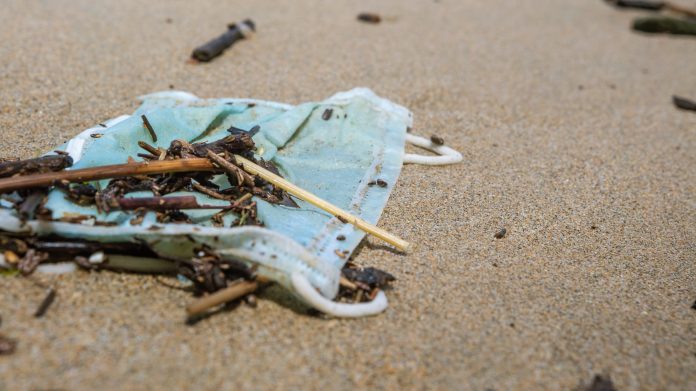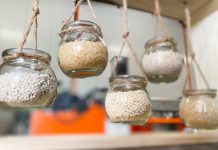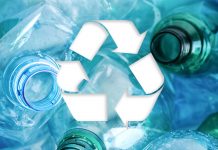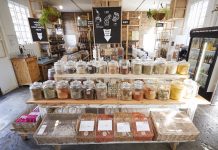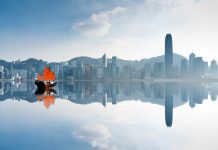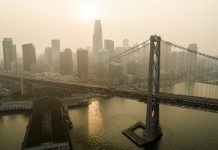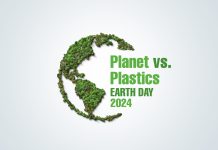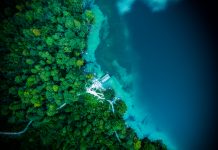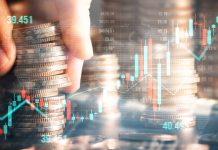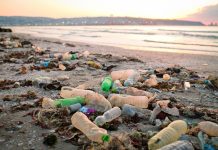The COVID-19 pandemic has sparked a huge surge in plastic pollution, adding to an already worrying plastic waste problem that is threatening all marine life
One of the greatest dangers to our environment is single-use plastic. Around 300 million tons of plastic is produced worldwide every year, and over 8 million of that enters the oceans annually, representing a huge threat to ocean ecosystems.
Many marine animals are getting tangled in plastic or consuming it and as a result are dying en masse. There are several studies that explore the relationship between human health problems and consuming fish that contain plastics. Oceanic ecosystems around the world have been ravaged by plastic waste.
The plastic pollution problem was an issue before COVID-19, but the pandemic has only exacerbated it.
Initial environmental successes
At the start of the COVID-19 outbreak there seemed to be successes for the environment with social distancing measures keeping people off the roads and out of the skies. As a result carbon emissions are predicted to fall by 4% in 2020, compared to 2019.
Due to the scrutiny of COVID-19 originating from wet markets, many wet markets in Asia were shut down or highly regulated. In Vietnam, all wildlife imports have been banned and they closed all of their wildlife markets.
However when it comes to our oceans, it is a story of havoc, rather than success.
PPE in our oceans
The lifespan of plastics is approximately 450 years. It never fully degrades but rather shrinks into smaller pieces of plastic more commonly known as micro-plastics.
The COVID-19 pandemic has meant orders for disposable masks and PPE has skyrocketed. An estimated 129 billion face masks and 65 billion gloves are used and disposed of globally, each month. Unfortunately, a lot of that is ending up in our oceans.
One of the problems with gloves and masks ending up in our oceans is that they can easily be mistaken for jellyfish, a favourite food of sea turtles. Also birds and other marine life can easily get entangled in the elastic components of masks.
Direct, ocean plastic pollution is only the start of the problem, the COVID-19 pandemic has also caused the following issues:
A collapsing oil market
Due to the COVID-19 pandemic bringing cars and planes to a standstill, there was a global crash in the oil markets. Natural gas and oil are the key components used to make plastic and their all-time low cost has meant it is extremely cheap for companies to package their products in newly made, cheap plastic. It has also increased the price gap between plastic alternatives such as plant based plastic and recycled plastic.
Online shopping surge
During these unprecedented times and with people being told to stay at home, many are turning to online shopping to buy gifts, food and clothes. According to Applied Communications Inc (ACI) e-commerce sales increased by 74% in March 2020 compared to the same period in 2019. This increase in online shopping is meaning more plastic packaging due to items being individually wrapped in order to be delivered.
A breakdown in recycling systems
Because of budget strains stemming from the COVID-19 pandemic, recycling systems around the world are starting to breakdown.
There are around 9,000 recycling facilities in the US, which are mainly run by municipalities and tied to local budgets. As states face extra costs such as health and unemployment costs associated with COVID-19, some municipalities are suspending their recycling services to save costs elsewhere. Peoria, Illinois, has already cut recycling programs and Omaha, Lexington and New Orleans are considering making the same move to save money.
Takeaway mania
The use of single-use plastic has skyrocketed as a result of increased takeout. Takeouts have been an economic saviour for many restaurants, however it is contributing to an increasing use of single use plastic globally, much of which is not recyclable.
Furthermore, reusable cups, which were a hit with environmentalists, have been temporarily banned from coffee shops due to health concerns associated with COVID-19. Similarly, many pubs that have reopened are serving beverages in disposable plastic cups and many are introducing measures such as plastic screens between tables and individually wrapped cutlery and condiments.
Although according to Louise Edge, a senior plastics campaigner at Greenpeace, these measures may not be necessary. “Experts are telling us that when it comes to buying food and drinks, plastic packaging doesn’t offer any special protection – and reusable cups, bottles and containers are perfectly safe to use, as long as they are washed properly and social distancing is observed.”
Solutions
Short term solutions can include wearing reusable face masks, fines and providing information on how to recycle properly if recycling systems have changed.
Julian Kirby from Friends of the Earth, said: “The most important thing for all of us is health and to stop the virus spreading. But most of us are not in the high-risk category, and the government advice is clear that we should be using reusable face masks.
“We can reduce the amount of plastic we are using and still look after our health.”
The environmental group, Greeners Action, based in Hong Kong have attempted to tackle the plastic pollution problem associated with COVID-19. In early April, the group surveyed over 2,00 people and found that they are ordering takeaway food at a rate more than twice that of last year. This indicates that there has been a surge in single-use plastic. They are now urging restaurants that are doing takeaway services to encourage their customers to bring their own Tupperware with them.
Similarly, WWF is encouraging large global cooperations to disclose their plastic footprint publicly, including how much plastic they are making, where it goes and their best guess at what happens to it.
There has been some movement in the transparency of plastic data, with P&G, Coca-Cola, Starbucks, Dr Pepper and McDonald’s leading the way and disclosing what goes on behind the scenes of their operations.
The European Green Deal presents an opportunity for companies to invest in innovations that could alleviate the plastic pollution issue in the long-term. Similar to the trend of using a reusable water bottle and banning plastic straws for the turtles started, brand owners could market their sustainable products in an ‘trendy’ way to encourage environmentally friendly products to become more appealing to customers.
Editor's Recommended Articles
-
Must Read >> Compostable plastics: Bio-Mi shares its R&D know-how
-
Must Read >> Eight conservation success stories of 2020
-
Must Read >> WHO report on microplastics in drinking-water
-
Must Read >> Advances in recycling and replacing plastics


